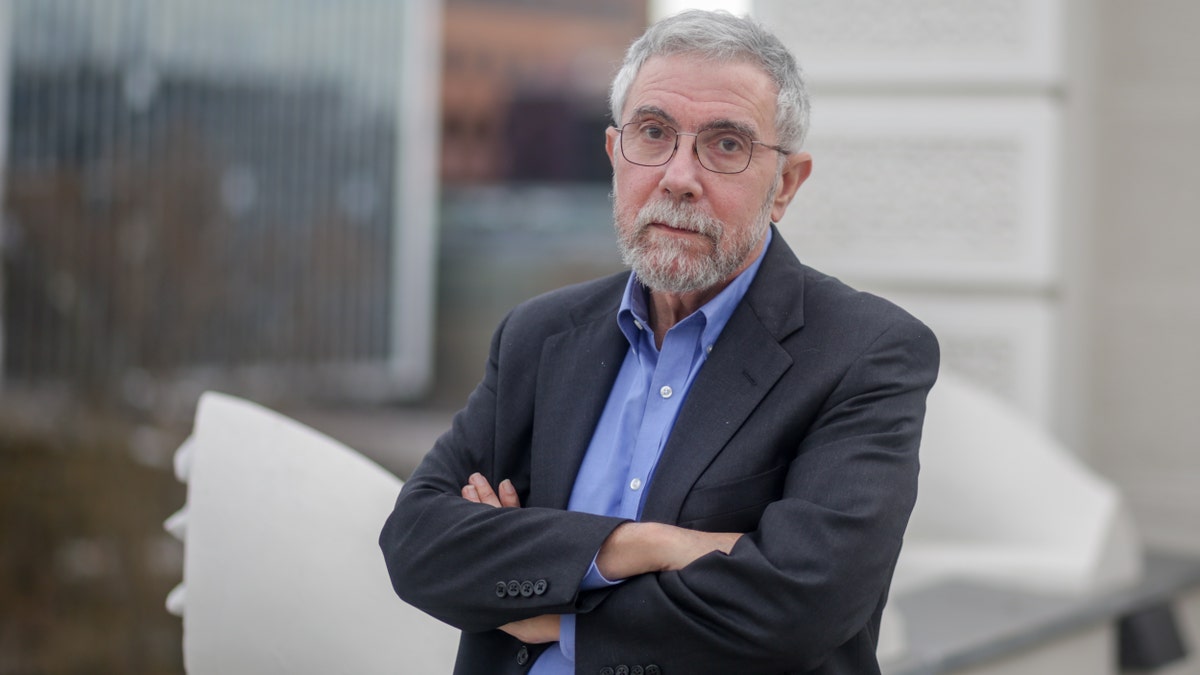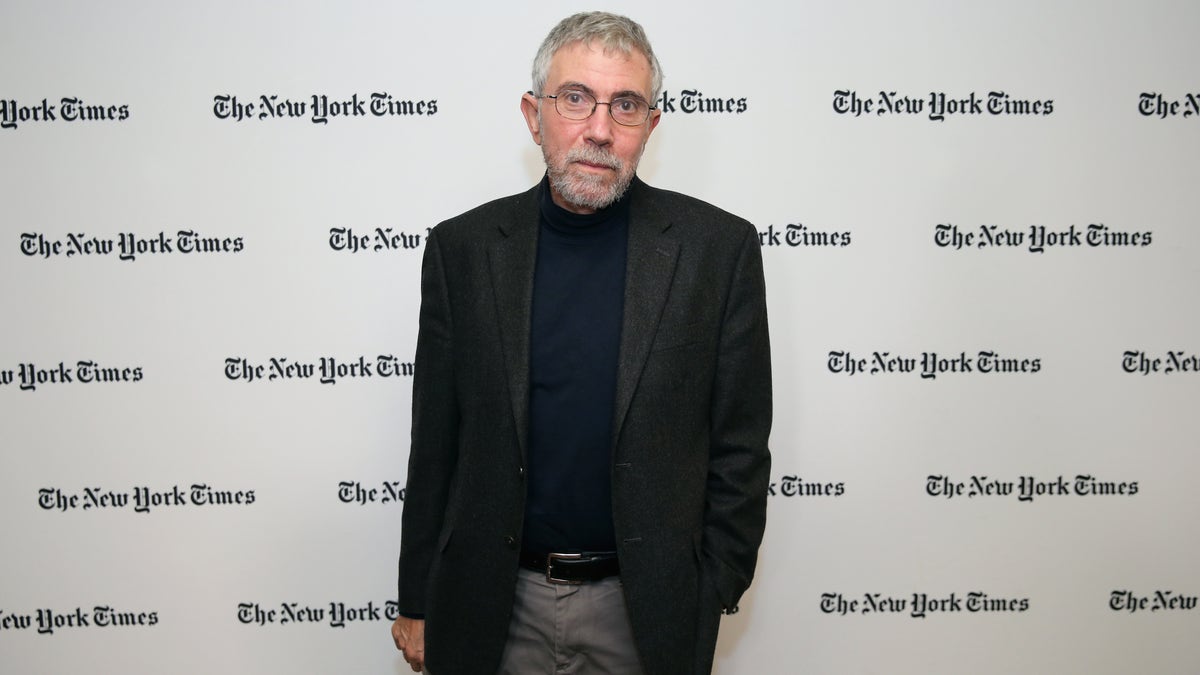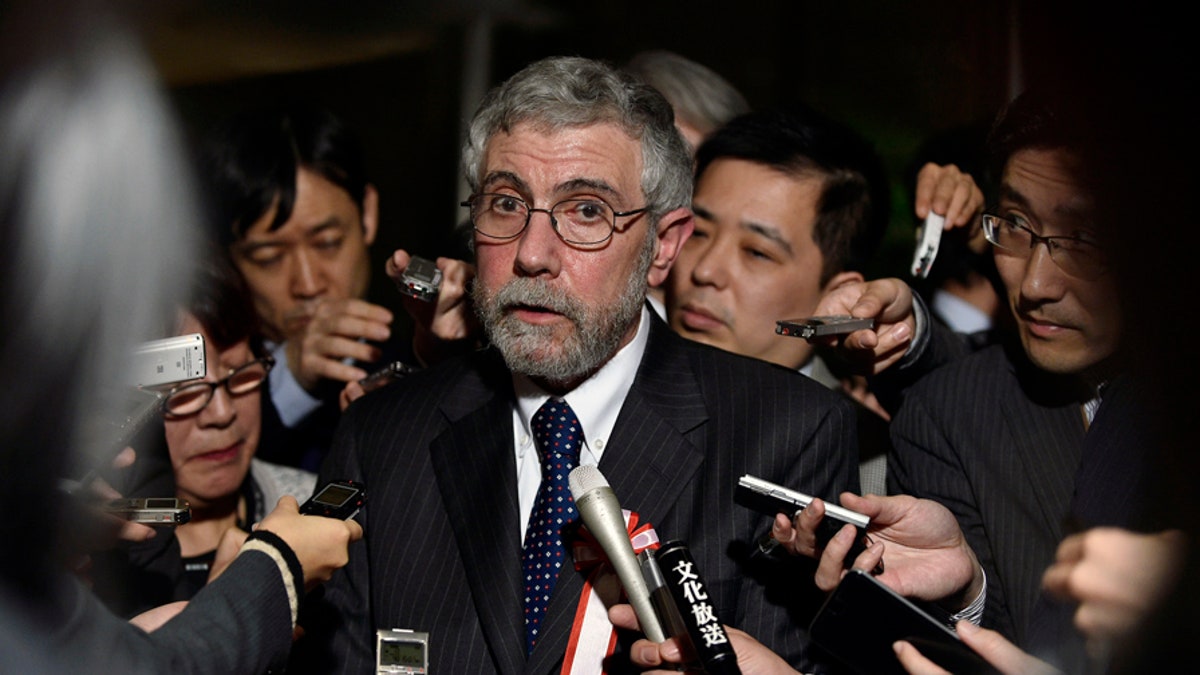White House officials won't describe the economy as being in a recession
Fox News White House correspondent Peter Doocy has the latest on the state of the American economy on 'Special Report.'
New York Times columnist Paul Krugman expressed confidence that there "won't be" a recession just days after he offered a mea culpa for wrongly dismissing inflation concerns.
In his piece Tuesday attempting to explain what a recession is, Krugman began by acknowledging "there’s a pretty good chance" that data set to be released on Thursday will show the GDP had shrunk for two consecutive quarters, which has long been an indicator of a recession.
Well, Krugman took a preemptive swipe at the "breathless commentary" that will erupt declaring a recession, telling readers "we won't be."
"That’s not how recessions are defined; more important, it’s not how they should be defined," Krugman wrote. "It’s possible that the people who actually decide whether we’re in a recession… will eventually declare that a recession began in the United States in the first half of this year, although that’s unlikely given other economic data."
BIDEN WHITE HOUSE TALKING POINTS REDEFINING RECESSION QUICKLY EMBRACED BY MEDIA OUTLETS

The North American economist Paul Krugman, poses after an interview with Europa Press at the Rafael del Pino Foundation on February 17, 2020 in Madrid, Spain. (Ricardo Rubio/Europa Press via Getty Images)
Krugman took a page from the White House playbook, which has been pointing to the National Bureau of Economic Research's Business Cycle Dating Committee as the only group that can definitively say the country is in a recession based on a wide variety of factors, not just GDP.
"So the official definition of a recession is that it is a period that the committee has declared a recession; it’s an expert judgment call, not a formula," Krugman wrote. "So where did the two-quarter thing come from? Part of the answer is that the N.B.E.R. doesn’t make recession calls in real time. For example, while the Great Recession is now considered to have begun in December 2007, the dating committee didn’t make that call until December 2008."
"Two quarters of economic contraction — a downturn sustained enough that it probably isn’t a statistical blip — seems, on the surface, like a reasonable criterion. But it’s not hard to see how it could be deeply misleading, even if the data are correct," he continued.
The Nobel Prize-winning economist went on to say it would be "foolish" to declare a recession solely based on Thursday's findings despite the extremely high correlation with multiple consecutive quarters of negative GDP growth.
"And what difference would a recession call make, anyway?" Krugman wondered. "What should matter is the state of the economy — which is complicated — not the particular word we use to describe it."
He added, "I’m already hearing rumblings that the [Biden] administration will be applying a double standard if it refuses to accept the 'official' rule that two quarters of negative growth define a recession…. Well, there is no such rule. It’s quite possible that we will in fact experience a recession soon; it’s even possible, although less likely, that one has already started. But there’s no reason to use the R-word this week."

Nobel Prize-winning economist and New York Times Opinion columnist Paul Krugman attends The New York Times Food For Tomorrow Conference 2015 at Stone Barns Center for Food & Agriculture on October 21, 2015 in Pocantico Hills City. (Neilson Barnard/Getty Images for the New York Times)
Krugman's high confidence in the U.S. steering clear of a recession came just days after he issued a stunning admission that he was "wrong" to dismiss inflation concerns.
In November 2021, a column titled "History Says Don't Panic About Inflation" tamped down Carter-era comparisons that were fueled by President Biden's critics as the administration continued pushing a narrative that the surge in prices was merely "transitory" following the economic turmoil sprung from the coronavirus pandemic.
"Inflation is running considerably hotter than many people, myself included, expected," Krugman said at the time. "What, then, does history teach us about the current inflation spike? One lesson is that brief episodes of overheating don’t necessarily lead to 1970s-type stagflation — 1946-48 didn’t cause long-term inflation… And we really should have some patience: Given what happened in the 1940s, pronouncements that inflation can’t be transitory because it has persisted for a number of months are just silly."
He later told readers, "So yes, that was an ugly inflation report, and we hope that future reports will look better. But people making knee-jerk comparisons with the 1970s and screaming about stagflation are looking at the wrong history. When you look at the right history, it tells you not to panic."
Last week, in a piece titled "I Was Wrong About Inflation," Krugman acknowledged he misjudged the economic climate, relying on post-2008 recession models that he thought applied to the post-COVID economy.

Paul Krugman admitted he was "wrong" to downplay inflation concerns in 2021. (REUTERS/Franck Robichon)
Krugman famously predicted a global recession just days after Donald Trump was elected president in 2016.
"It really does now look like President Donald J. Trump, and markets are plunging… If the question is when markets will recover, a first-pass answer is never," Krugman wrote in November 2016.
CLICK HERE TO GET THE FOX NEWS APP
He later warned, "We are very probably looking at a global recession, with no end in sight. I suppose we could get lucky somehow. But on economics, as on everything else, a terrible thing has just happened."









































